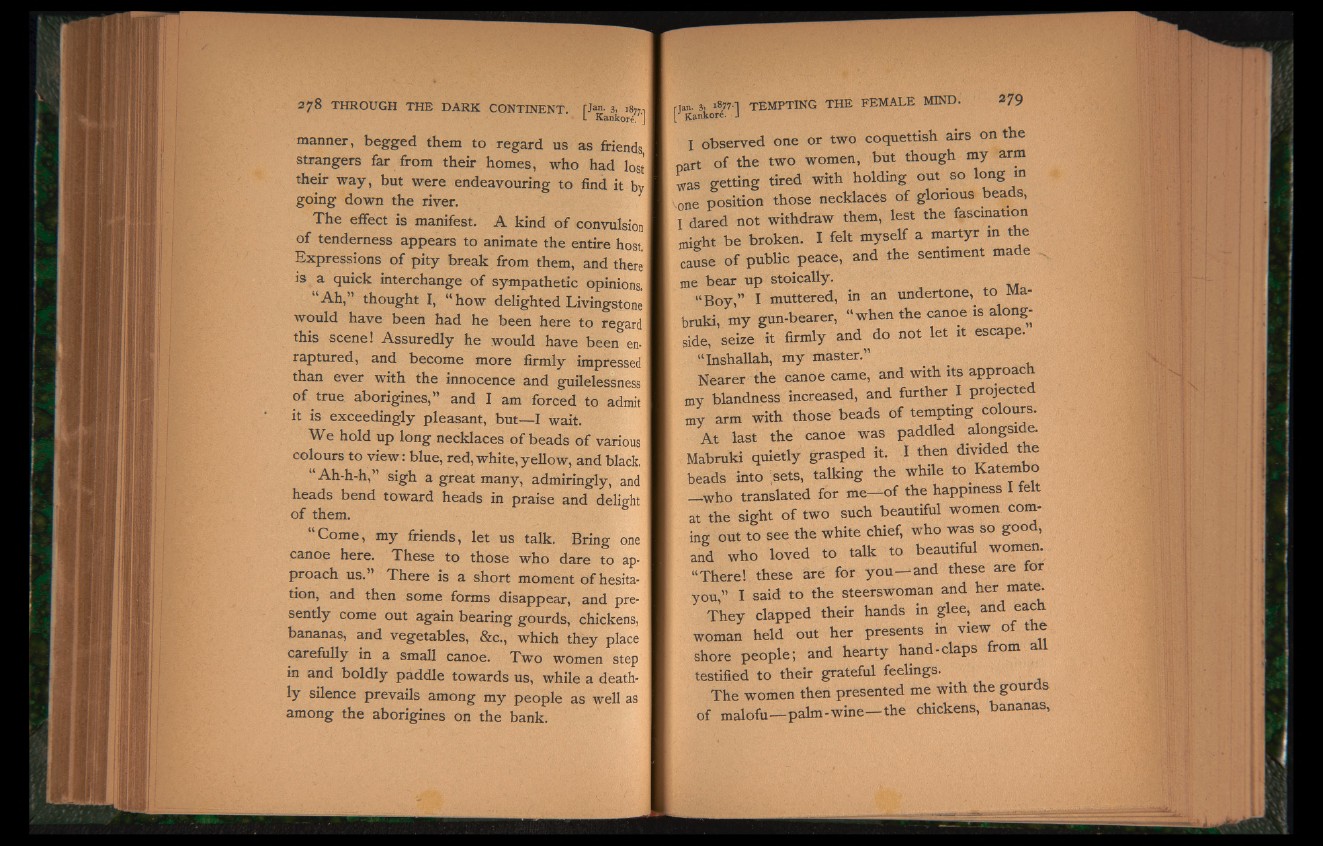
278 THROUGH THE DARK CONTINENT. |"Jan- 3. 18771
• L Kankore. J
manner, begged them to regard us as friends
strangers far from their homes, who had lost
their way, but were endeavouring to find it by
going down the river.
The effect is manifest. A kind of convulsion
of tenderness appears to animate the entire host
Expressions of pity break from them, and there
is a quick interchange of sympathetic opinions. j
Ah, thought I, “ how delighted Livingstone
would have been had he been here to regard |
this scene! Assuredly he would have been enraptured,
and become more firmly impressed
than ever with the innocence and guilelessness j
of true aborigines,” and I am forced to admit I
it is exceedingly pleasant, but—I wait.
We hold up long necklaces of beads of various :
colours to view: blue, red, white,yellow, and black.
Ah-h-h, sigh a great many, admiringly, and
heads bend toward heads in praise and delight :
of them.
“ Come, my friends, let us talk. Bring one
canoe here. These to those who dare to approach
us.” There is a short moment of hesitation,
and then some forms disappear, and presently
come out again bearing gourds, chickens,
bananas, and vegetables, &c., which they place
carefully in a small canoe. Two women step
in and boldly paddle towards us, while a deathly
silence prevails among my people as well as
among the aborigines on the bank.
I observed one or two coquettish airs on the
oart of the two women, but though my arm
was getting tired with holding out so long in
,one position those necklaces of glorious beads,
I dared not withdraw them, lest the fascination
might be broken. I felt myself a martyr in the
cause of public peace, and the sentiment made ...
me bear up stoically.
“Boy,” I muttered, in an undertone, to Ma-
bruki, my gun-bearer, “when the canoe is alongside,
seize it firmly and do not let it escape.
“ Inshallah, my master.” | _
Nearer the canoe came, and with its approach
my blandness increased, and further I projected
my arm with those beads of tempting colours.
At last the canoe was paddled alongside.
Mabruki quietly grasped it. I then divided the
beads into ;sets, talking the while to Katembo
—who translated for me— of the happiness I fe t
at the sight of two such beautiful women coming
out to see the white chief, who was so good,
and who loved to talk to beautiful women.
“There! these are for you— and these are for
you,” I said to the steerswoman and her mate.
They clapped their hands in glee, and each
woman held out her presents in view^ of the
shore people; and hearty hand-claps from all
testified to their grateful feelings. ^
The women then presented me with the gour s
of m a l o f u — palm-wine— the chickens, bananas,